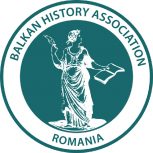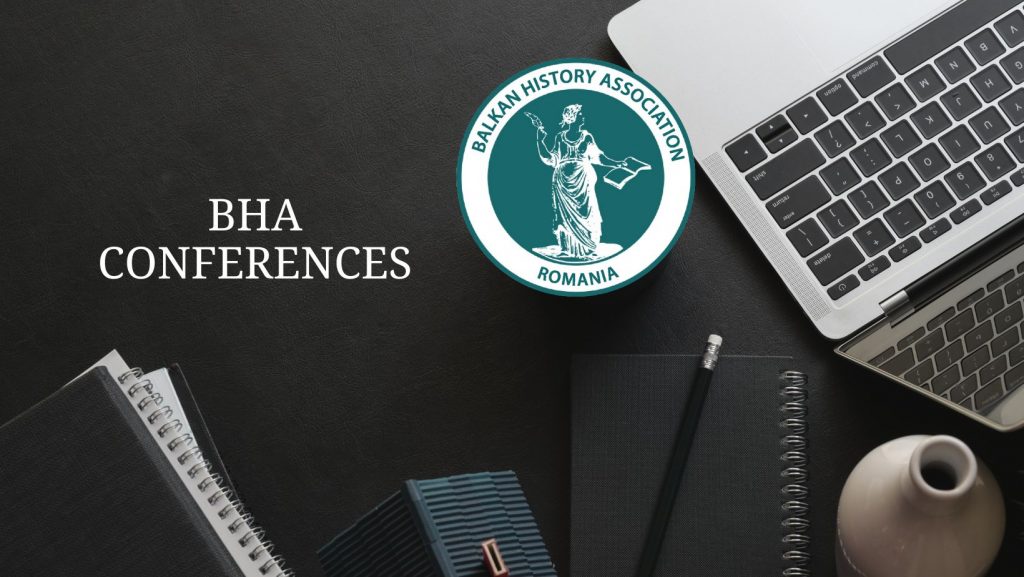Theme : Memory Studies, Public History
Date: November 29th-December 1st 2024
Place: Thessaloniki, Greece
The Department of Balkan, Slavic and Oriental Studies, University of Macedonia, Thessaloniki, the Department of History, Faculty of Law and History, South-West University “Neofit Rilski”, Blagoevgrad, the History Laboratory of the Department of Balkan, Slavic and Oriental Studies, University of Macedonia, Thessaloniki, and the Balkan History Association are organizing an international conference on November 29th-Decemeber 1st 2024 in Thessaloniki, Greece, with the subject “Common past—divided memories”. The conference is addressed to all academics, including young scholars.
Abstracts no longer than 300 words, along with contact information, name, and institutional affiliation, should be sent to commonpast-memories@uom.edu.gr (conference secretary). The deadline for abstract submission is 15 July 2024, and the full list of speakers will be announced in the end of July 2024. For more information https://www.memoryconference2024.uom.gr/ .
Aims and subjects
Undoubtedly the common patterns of Modern and Contemporary History of Eastern and Southeastern Europe were formed by the contradictions of the legacy of the Enlightenment, whose ideas of the universal character of human spirit and historical progress inspired cultural emancipation, national revivals, and political revolutions, the birth of modernity and nationalism, and social and technological progress, but these ended in the world wars that brought about the fall of multinational empires and the rise of authoritarian and totalitarian regimes and casted a shadow over the ideals of human reason and its critical power.
In its turn, the ensuing pivotal developments in the last decades, the fall of Communism, the disintegration of the Soviet Union and of the Warsaw Pact, marked in a specific way our perception and apprehension of the common past and different national destinies within it.
There should be no doubt that our understanding of all these common processes and different experiences, which embrace a very large scale of political, economic, and cultural changes, transformations, transitions, and radical shifts as well as their contrasting or familiar significance for states, societies, and individuals, have been instrumental in different policies from above and below, and shaped by official and non-official institutions, structures and agents, in public and private.
Memory studies, concerned with analysing all these phenomena and revealing the sources for the emancipation of marginal groups and political minorities by approaching the context in which the common collective and separate individual choices have been made, already have a long pedigree.
The recent paradigm turns in the social sciences, and the revitalization of the theoretical frames of 1990s due to the wars in Ukraine and Gaza, motivate us to propose the conference aiming to fill a gap in the scholar research related to two contemporary developments: 1) the growth of colonial and post-colonial theoretical tools, used to analyse the formerly imperial spaces of Europe’s South, Centre and East, and 2) the increased importance accorded to polyethnicity and diaspora groups for the comprehension of political, social, and economic development in these regions. The two developments point, however, in diverging directions.
Colonial and post-colonial theories tend to prioritize systems of memory production favoured by those decolonized, often viewed as a single group or nation. An emphasis on polyethnicity and diaspora groups on the other hand tends to prioritize decentred forms of memory production, where the group that will eventually become dominant in any given region as part of the process of nation state formation is called on to share the space of memory production with other groups within and beyond the state, often with very different concerns and interests.
Focus
The organizers invite scholars from the humanitarian and social sciences interested in memory studies to submit proposals for participation in the conference:
- shared/divided memories of the process of transition from one political system to another.
- shared/divided memories of processes leading to the demise of empires and/or communist regimes.
- shared/divided memories of the experience of past multi-ethnicity.
- shared/divided memories of refugee status, of the creation of national citizen bodies, and of attempts at societal integration.
- patterns of sharing/differentiation in the process of memory construction between groups.
- intergenerational divergences in these narratives.
The organizers encourage the presentation of joint papers by scholars who see the past from different perspectives. We also welcome the papers on theory and research methods relevant to the topic of the conference.
Academic Committee
Dimitris STAMATOPOULOS, Professor, UNIVERSITY OF MACEDONIA
Valentin KITANOV, Professor, SOUTH-WEST UNIVERSITY NEOFIT RILSKI
Snezhana DIMITROVA, Associate Professor, SOUTH-WEST UNIVERSITY NEOFIT RILSKI
Vlasis VLASIDIS, Associate Professor, UNIVERSITY OF MACEDONIA
John Constantine CARRAS, Associate Professor, UNIVERSITY OF MACEDONIA
Organising Committee
Dimitris STAMATOPOULOS, Professor, UNIVERSITY OF MACEDONIA
Valentin KITANOV, Professor, SOUTH-WEST UNIVERSITY NEOFIT RILSKI
Snezhana DIMITROVA, Associate Professor, SOUTH-WEST UNIVERSITY NEOFIT RILSKI
Vlasis VLASIDIS, Associate Professor, UNIVERSITY OF MACEDONIA
Panagiotis MICHAILIDIS, Professor, UNIVERSITY OF MACEDONIA
Mihai DRAGNEA, Ph.D., BALKAN HISTORY ASSOCIATION
Eleni Paschalidou, Ph.D. candidate, UNIVERSITY OF MACEDONIA
Venue
The conference will be held in Thessaloniki, on the premises of University of Macedonia on November 29th-December 1st 2024. The organizers will cover the cost of accommodation, conference materials, participation in the planned excursion, refreshments, and lunch. For some researchers the transportation cost will be covered as well.
The conference will be accompanied by a visit to the Museum of the Macedonian Struggle, dedicated to the recent history of Macedonia with its own research Centre, and a tour to Thessaloniki city and the surroundings.
The texts of the announcements will be included in volume of proceedings following on from peer review processes and will be published by an eminent international publishing house.
Please circulate this call for papers among your colleagues and other potentially interested scholars.

